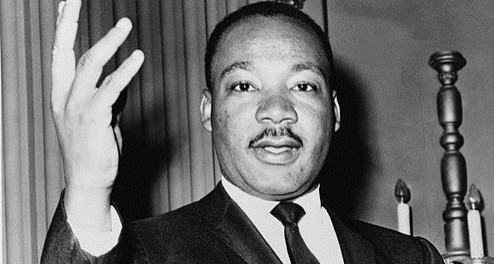NSA Spied On Martin Luther King Jr, Muhammad Ali And Other Prominent Americans When Vietnam War Protests Peaked

The National Security Agency, or NSA, pried on civil rights icon Martin Luther King, Jr., former boxing champion Muhammad Ali and several other prominent Americans in the late 1960s and early 1970s, when protests against the Vietnam War peaked, according to declassified documents published on Wednesday by George Washington University.
The NSA also targeted prominent public figures including New York Times journalist Tom Wicker, veteran Washington Post humor columnist Art Buchwald and two prominent members of Congress, Sen. Frank Church (D-Idaho) and Sen. Howard Baker (R-Tenn.), as well as civil rights leader Whitney Young.
The highly sensitive documents, which were released in response to an appeal to a government panel by the university’s National Security Archive, showed that some NSA officials, at the time, saw the operation targeting prominent personalities as “disreputable if not outright illegal.”
“It was these concerns that led Attorney General Elliot Richardson to close down the program in the fall of 1973, as the Nixon administration was beginning to unravel,” the university archive said. “In a context of domestic turbulence of 1967, anti-war protests and urban rebellions, President Johnson, angered by the criticism and prone to seeing conspiracies, wanted to know whether domestic anti-Vietnam War leaders and organizations had the support of hostile foreign powers,” the archive said, adding that such concerns led to the creation of the watch list comprising of 1,600 people.
The latest revelation comes at a time when the NSA is in the middle of a controversy over its foreign and domestic surveillance programs, leaked by former defense contractor Edward Snowden.
The newly declassified documents also showed that weeks before the Cuban missile crisis in October 1962, when the world’s two most powerful nations came dangerously close to waging a nuclear war, NSA detected that the Soviet Union had put its military on higher alert but stood down its bomber fleet over apparent concerns that Washington knew of the deployment of Soviet nuclear missiles in Cuba.
NSA also snooped on Panama’s President Omar Torrijos in the 1970s, which may have given U.S. diplomats an upper hand in the negotiations leading up to the signing of the Panama Canal Treaty of 1977, between Torrijos and President Jimmy Carter, the documents showed.
© Copyright IBTimes 2024. All rights reserved.






















